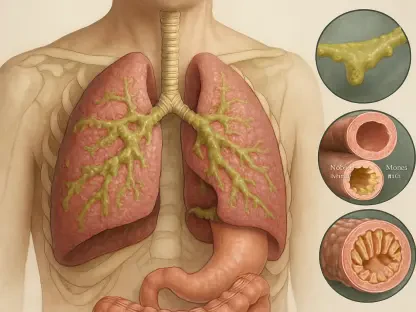In Tarrant County, Texas, an increasing number of physicians are favoring the Direct Primary Care (DPC) model over traditional insurance-based care. This shift represents a broader national trend where doctors are becoming increasingly frustrated with the limitations and constraints imposed by insurance companies. These healthcare professionals are actively seeking alternative methods to provide better patient care. DPC requires patients to pay a monthly fee directly to their physicians, effectively bypassing insurance companies altogether. This model offers greater flexibility and fosters a more personal approach to patient care, which many doctors and patients alike find appealing.
Growing Popularity of DPC in Tarrant County
The rise of DPC practices in Tarrant County has been remarkable, with the number of such clinics increasing from 20 in February 2024 to 24 by December 2024. DPC Frontier, an organization that tracks membership-based care clinics across the nation, has reported this growth. The model appeals particularly to young physicians who have recently graduated from medical school. These new doctors are drawn to DPC because it offers a unique opportunity for clinic ownership and autonomous practice, sharply contrasting with the restrictions imposed by the traditional insurance-based system.
Dr. Anatoli Berezovsky is a representative of this trend. After completing his family medicine residency at JPS Health Network in 2020, he became increasingly frustrated with how insurance companies influenced medical practice. The pressure to see a high volume of patients each day, resulting in a disconnected patient-doctor relationship, was a significant concern for Berezovsky. This dissatisfaction prompted him to explore DPC during his third year of medical school. He eventually opened Mila Family Health in August 2023. Mila Family Health started as a home-visit practice but expanded to a physical location by November 2024. The clinic offers monthly fees ranging from $25 to $100 per person, depending on age, providing comprehensive primary care services through calls, texts, emails, video chats, and same- or next-day appointments. The clinic quickly grew to serve over 50 patients, demonstrating the model’s appeal and viability.
Expansion and Success of Local DPC Practices
Other Direct Primary Care practices in Tarrant County have reported similar growth trajectories. Dr. Kara Farley’s Mid Cities Direct Primary Care in Grapevine, established four years earlier, experienced rapid expansion, growing from 750 patients in February 2024 to over 950 by December. The increase in patient numbers prompted the hiring of an additional physician to manage the growing demand. Meanwhile, Enlightened Health Direct in South Arlington, founded by Dr. Alex Vilaythong, saw patient numbers soar from 130 in February 2024 to 300 by December. Vilaythong emphasized that DPC caters to individuals who cannot afford insurance yet do not qualify for health assistance programs. He also noted that a growing number of insured patients are opting to switch to DPC.
Supporters of DPC argue that the model can mitigate the primary care shortage by enhancing job satisfaction and reducing burnout among doctors. This potentially attracts more professionals to the field of primary care. The increased flexibility provided by DPC enables physicians to focus more intently on patient care, sidestepping the administrative burdens typically imposed by insurance companies. The benefits of DPC, such as more time to spend with patients and less bureaucratic interference, contribute to a more fulfilling work environment for physicians. Additionally, it may encourage more medical students and residents to select primary care as their specialty.
Criticisms and Concerns About DPC
Despite its benefits, DPC faces criticism and concerns regarding its broader implications for the healthcare system. Dr. Mark Fendrick, a professor at the University of Michigan’s School of Public Health, cautions that DPC could exacerbate existing disparities in primary care availability. Because DPC models typically involve fewer patients per doctor, they might reduce the overall number of patients a single physician can see, potentially leading to limited access to care in some areas. A 2021 study from the National Library of Medicine suggests that the DPC model might contribute to a shortage of primary care physicians, as it could draw doctors away from the traditional insurance-based system that serves a wider spectrum of the population.
Critics also highlight that DPC practices often emerge in more affluent areas, potentially deepening healthcare inequities. Wealthier communities like Keller and North Richland Hills in northern Tarrant County, which had a median income of $110,963 in 2022, host many DPC clinics. In contrast, more impoverished areas of Tarrant County, such as ZIP codes 76104, 76105, and 76119, lack DPC practices altogether. These ZIP codes, characterized by high poverty levels and significant health disparities, are left without access to the benefits offered by the DPC model. This geographic distribution of DPC clinics raises concerns about equitable access to healthcare, with poorer areas potentially being underserved.
Potential for Increased Accessibility
The DPC approach can lead to better healthcare outcomes and higher patient satisfaction by reducing paperwork and administrative burdens. As the trend grows, more doctors in Tarrant County and across the nation are likely to adopt this method, prioritizing direct, quality care over administrative protocols.









